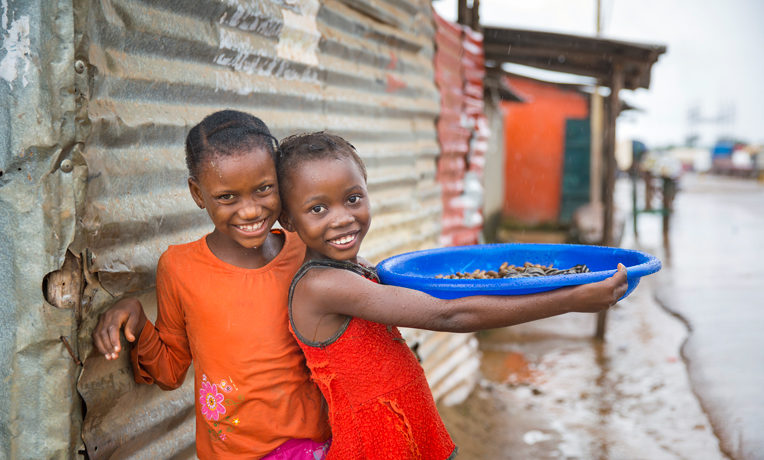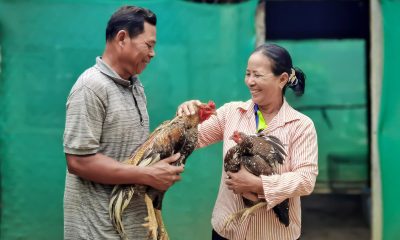Samaritan’s Purse continues work in Liberia after the Ebola epidemic devastated the country
Two years ago, Ebola crippled the country of Liberia.
I followed the stories closely on the news— but I watched from the comfort of my living room.
I listened to the staggering statistics as hundreds of people died each day—but I knew no one personally affected.
I had no frame of reference for the rampant disease seemingly overtaking an entire country.
Then, last month, I had the opportunity to travel to Liberia to see Samaritan’s Purse projects firsthand. Two years after Ebola, I walked on the muddy paths in Monrovia, looked into the eyes of Ebola survivors, and listened to their brave stories.
After the Ebola epidemic, Samaritan’s Purse restructured its entire programming in the country of Liberia. Now, each project focuses on connecting, supporting, or training Ebola survivors. Projects work to reduce the stigma of survivors, increase access to quality healthcare, teach widows how to become business owners, and train families in income-generating skills such as urban gardening or soap making.
Cecelia Fayiah, an Ebola survivor, is one of nearly 200 participants in Montserrado county who is learning urban gardening techniques. Her garden—made up of eggplants, okra, corn and collard greens—serves as a source of nutrition and income.
Because of the skills she has learned through the program, she is able to send her children to school and pay for their books. Cecelia dreams of expanding her garden and growing a strong business.
Moses Nugbo is another participant who I was blessed to meet during my visit. His specialty is handmade soap, which he sells at the local market.
Moses is an Ebola survivor. What he remembers most about his time in the Ebola Treatment Unit is seeing everyone around him die. Nine of these deaths were his family members, including two of his own children
“God was always with me,” he said. “If not for God, I wouldn’t have survived.”
After recovering from Ebola, he thought the fight was over, but it was really only beginning. Moses was ostracized by his community because his neighbors feared the unknown and worried they would contract Ebola if they associated with him.
When Moses finished telling me his story, I began to stand up from my crouched position on the floor, but Moses grabbed my arm and pulled me back toward him. He looked me in the eyes and said five powerful words
“Samaritan’s Purse stood by me.”
For this, he thanked me over and over again.
From the civil war to the Ebola epidemic, Liberians have seen countless organizations come and go—offering their help but not staying long-term. Samaritan’s Purse, on the other hand, has continued to work in Liberia since 2003. While the programming has changed to better reflect the needs, the mission has remained the same—to provide physical and spiritual aid to the people of Liberia. This commitment has not gone unnoticed, and it has opened the door for staff members to share the Gospel with Liberians.
This is why Samaritan’s Purse works in remote areas around the globe. We work to share God’s love with those who feel forgotten and shunned by their communities. We work to meet people in their time of need and give them the hope of Jesus Christ, which extends far beyond a vegetable garden or a bar of soap.
We stand by people like Cecelia and Moses because this is what Jesus has called us to do. We stand by them because every day Jesus stands by us.
“And the Lord, He is the One who goes before you. He will be with you, He will not leave you nor forsake you; do not fear nor be dismayed” (Deuteronomy 31:8, NKJV).








